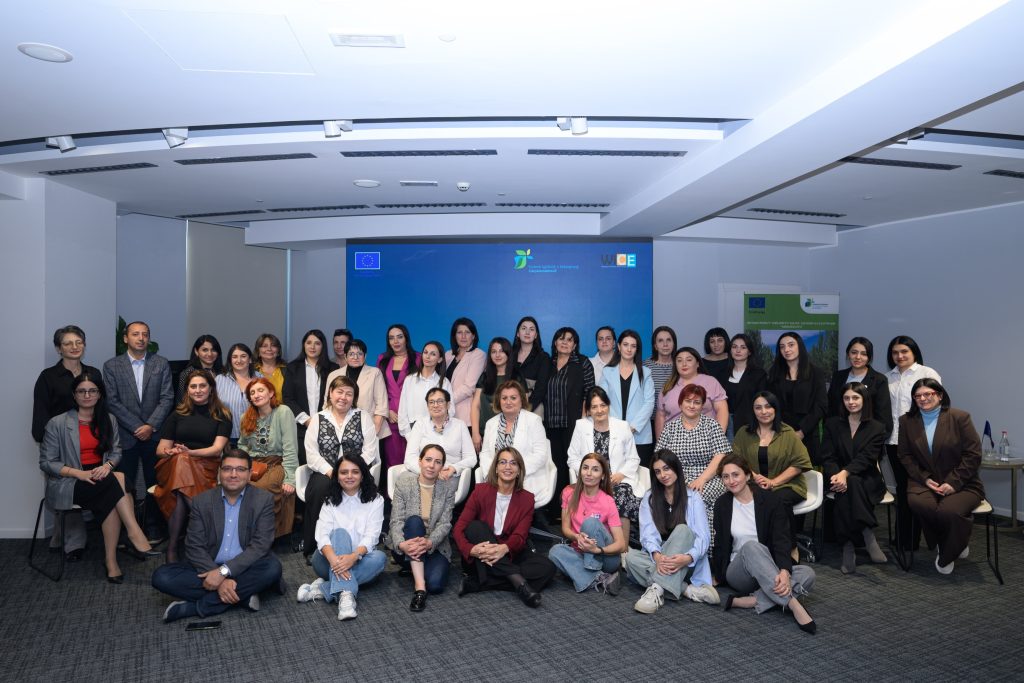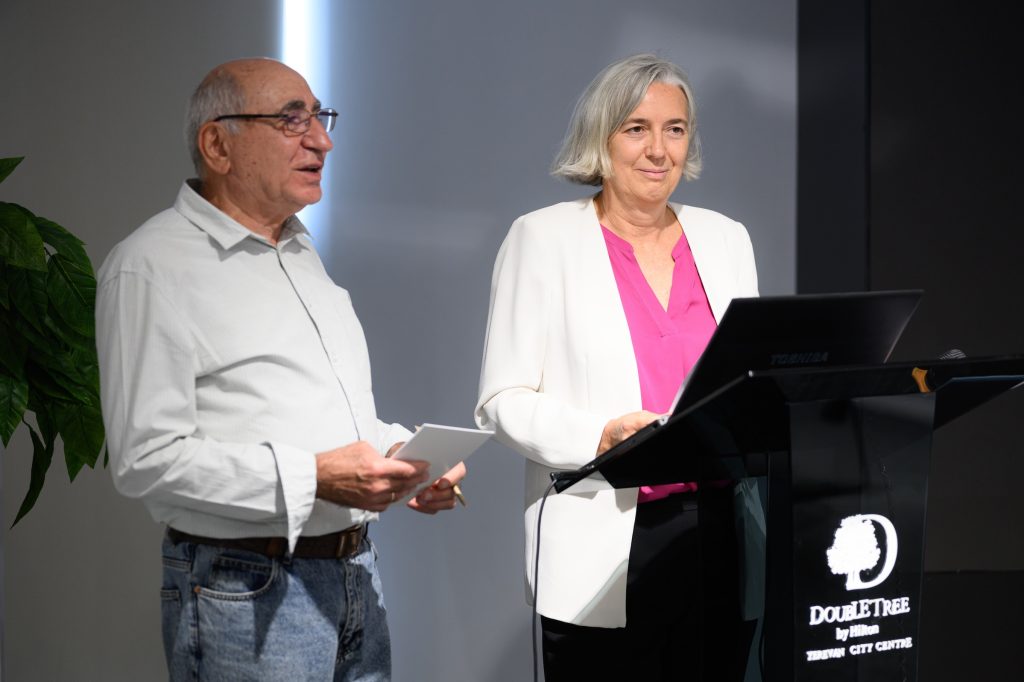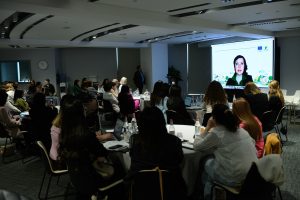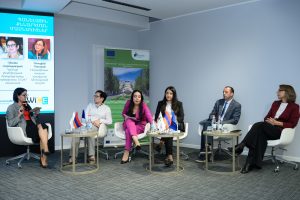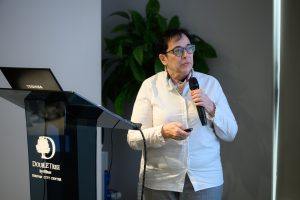Case studies, District heating, Municipal buildings and facilities, Others, RES, Residential buildings, Street lighting, Transport
Armenia hosts training on women in sustainable energy development

A two-day training workshop titled “The Role of Women in Sustainable Energy and Climate Development of Communities” took place in Yerevan, Armenia, on 7-8 October. The EU-funded Covenant of Mayors-Eastern Partnership (CoM East) initiative organised the event in collaboration with the NGO “Women in Climate and Energy”.
Around 60 participants attended, including women specialists from Covenant of Mayors signatories in Armenia involved in decision-making processes in local governments and those responsible for coordinating Covenant-related activities. Representatives of local women-led NGOs operating in environment, climate and energy sectors, local and international organisation experts and the project team also participated.
Mr Artem Kharazyan, CoM East Country Expert in Armenia, emphasized the importance and uniqueness of the event, noting: “In terms of both content and format, this workshop is new for our project as exclusively women have been selected as the target group, and the topics to be presented and discussed focus on the role of women in the sustainable energy and climate development of communities. Another unique aspect is that, unlike previous events where the target group was limited to local authority representatives, this workshop also includes local NGOs, which could lead to future collaboration between the project and new stakeholders.”
Referring to the impacts of climate change, Mr Kharazyan emphasized that their consequences are already being felt all over the world, causing significant damage to ecosystems and economies, threatening the sustainable development of communities. “Climate change exacerbates existing social and gender inequalities, creating disproportionately high risks for the most vulnerable groups, including women and girls. At the same time, women are the most active advocates in the fight against climate change at the household, community, and state levels,” he noted.
Ms Sonia Lopez Lopez, Cooperation Officer for Transport and Energy at the EU Delegation to Armenia, highlighted the adverse effects of climate change, including extreme weather events, loss of biodiversity and threats to ecosystems and people’s livelihoods, whilst underlining the key role of municipalities in fighting climate change by implementing sustainable development programmes and raising awareness about climate change and its impacts.
“Women are disproportionately affected by climate change, and the EU is committed to promoting the participation and leadership of girls and women in sustainable energy and climate,” Ms Lopez Lopez noted.
In her video message, Ms Maria Falaleeva, Policy and Institutional Relations Coordinator of CoM East Secretariat, noted the importance of considering climate justice, including the social and gender aspects of climate change, when developing municipal sustainable development strategies.
“Gender and climate is a new topic at the intersection of environmental, social, and economic policies. In our region, there has not yet been much research in this area, although Armenia already has public organizations and experts who are actively working in this field. Therefore, it is gratifying that representatives of these organizations are participating in the workshop as lecturers. The results of the two-day event will be especially valuable for our project,” noted Ms. Falaleeva.
In her welcoming speech, Ms Aneta Babayan, Director of the Yerevan Construction Investment Programs Implementation Office, noted that women are pioneers in solving existing problems in their communities, families, and various sectors. Addressing the female participants, she assured them that they should not wait for perfect systems, but instead, they should start acting boldly and decisively, each in their own place, creating good in their community.
Ms Nune Sakanyan, President of the “Women in Climate and Energy” NGO, noted the importance of women’s leadership and joint actions in overcoming climate and energy challenges and launched the panel discussion titled “The Role of Women in the Climate and Energy Sector”, during which representatives of the RA Ministry of Territorial Administration and Infrastructure (CNC), the RA Ministry of Environment, and sector experts spoke about the various issues that women face in their work and activities.
Day One: Expert Presentations
The first day featured presentations on critical topics, including
- Climate change in Armenia with a focus on challenges and policy developments (presented by the Climate Change Programme Senior Adviser from UNDP Armenia),
- The importance of including communities, youth, vulnerable groups and gender in climate change actions (Astghik Mirzakhanyan, Social Vulnerability and Gender Expert),
- Climate change vulnerability and adaptation issues in communities alongside social inclusion considerations (Gohar Hovhannisyan, Climate Change Adaptation Expert),
- and Climate change mitigation solutions at both national and community levels (Astghine Pasoyan, Director of Energy Saving Foundation).
Day Two: Interactive Discussions
The second day featured “World Café” group discussions, an interactive format designed to encourage open dialogue and collaborative problem-solving amongst participants. This was followed by a panel discussion entitled “Women Advancing the Just Energy Transition: Leadership, Innovation and Impact” with representatives from Sevan, Artik, Aparan, Vanadzor and Akunq communities.
The World Café format created an engaging environment for participants to exchange experiences, share ideas and collaborate on practical solutions. The teamwork focused on discussing key policy gaps, gender aspects, necessary reforms and recommendations across several thematic areas: vulnerability mapping, policy development, community adaptation and mitigation action plans, households, and sustainable energy and gender issues.
Workshop Objectives and Outcomes
The two-day workshop aimed to explore the unique vulnerabilities that women face in the context of climate change, including limited access to resources, decision-making processes and social support systems. It also highlighted the critical role women play in climate mitigation, adaptation and resilience-building, emphasising their potential as leaders and innovators in addressing environmental challenges. The event’s ultimate goal was to equip participants with a deeper understanding of these issues and empower women to take an active role in developing sustainable solutions essential for fostering resilient communities.

